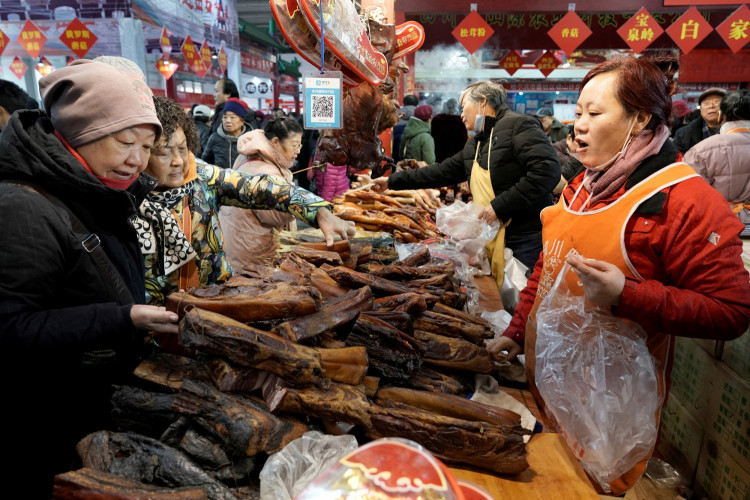The consumer price index (CPI) in China for January had surged by 5.4 percent year-on-year, exceeding initial analysts' estimates. Official data released on Monday blamed the Lunar New Year holidays, which apparently pushed demand for food items. The novel coronavirus epidemic in the country, which was first detected in the Chinese city of Wuhan on December 31, was also blamed for delaying supplies, which in turn jacked prices upwards.
The CPI, which is the main gauge for inflation, had surged by 4.5 percent when compared to the previous month and 5.4 percent year-on-year. Apart from the increased demand and the decreased supply, the price of pork in the country still remained to be one of the biggest contributors to the elevated price levels.
According to the National Bureau of Statistics (NBS), pork prices soared by over 116 percent in January. This contributed to an elevated report in the country's CPI for the particular month. Meanwhile, food prices as a whole had risen by about 20.6 percent in January. This was a 3.2 percent increase when compared to the previous month. Prices for non-food items only grew by 1.6 percent.
NBS senior statistician, Dong Lijuan, pointed out all of the factors in a statement released this week. He also added that a low base effect also managed to push the figure up for the month of January. China's Lunar New Year fell mostly during the month of January, making the particular month the high season for food consumption out of the other months in the year.
Dong also pointed out that looking at it on a month-to-month basis, January's CPI also rose by 1.4 percent. As for the core CPI, which excludes food and energy prices, it only rose up by 0.1 percent in January when compared to the previous month.
This apparently shows that prices remained relatively unchanged, except for a specific number of goods such as pork. Based on the figures, domestic demand has apparently only edged up slightly by a modest amount. Analysts have stated that the CPI may go on a downward trajectory this month given the gradual restoration of the country's hog production.
However, some analysts have argued that the spread of the virus and other geopolitical elements still remained as unknown factors that could potentially push prices up in the short-term. Some believe that the effects of the epidemic could fully dissipate by March of this year as fears and uncertainty over its effects on the economy slowly die down.






